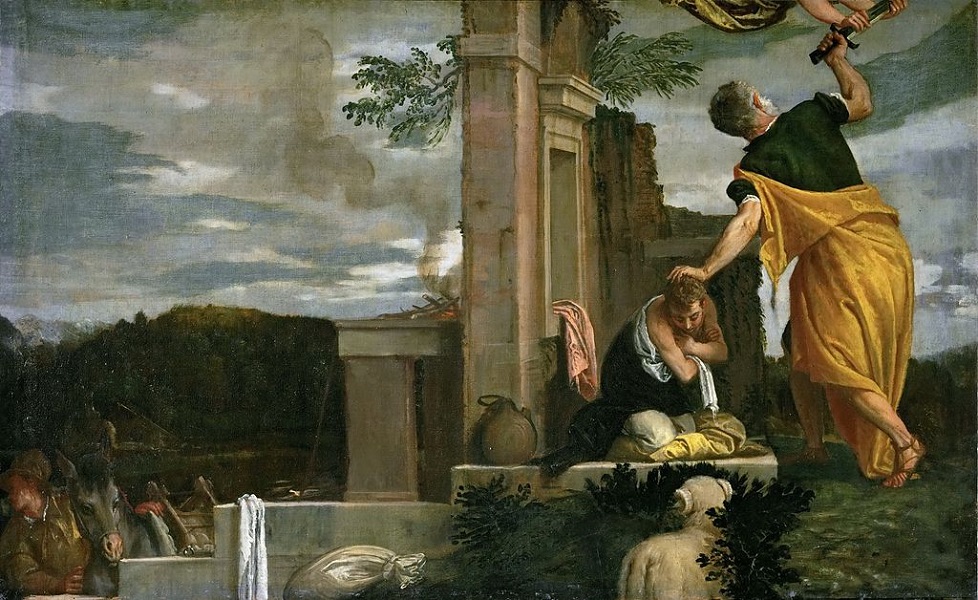Avraham’s journey towards the Akeida takes 3 long days. During this time, he is deliberating, debating, experiencing an extended inner struggle as depicted in the Midrash describing his meeting with an old man (his conscience) who makes him confront that which he is about to do. Where are you going? the man asks. Why do you carry a knife? The nature of Avraham’s internal dilemma has been described as the “teleological suspension of the ethical”, meaning that Avraham’s understanding of G-d as being all good, is not compatible with Avraham’s being commanded to sacrifice his beloved son. Alternatively, Avraham must confront the total contradiction between having been promised “Ki v’Yitzchak Yikarei L’cha Zara” (in Isaac shall thy seed be called – Bereishit 21:12) and being told to bring Isaac to the Akeida (Rashi on 22:12).
These conflicting messages are seemingly irreconcilable. They are like two parallel lines that can never meet. And, yet, in the Almighty, in the Ein Sof, at infinity, they do meet and can be reconciled.
Many Olim, and potential Olim, may easily identify with Avraham, as they spend days, months and even years deliberating their Aliyah. Often the commandment to Live in the Land seems to be irreconcilable with the financial realities of buying a home and supporting the family on an Israeli salary. Likewise, for many, there exists the stark dichotomy between the Land being ours and the political reality of not having control over Har HaBayit and having to travel to Chevron and Beit Lechem in armored buses. These, too, are like parallel lines that seemingly can never meet!
Yet, here in the Land of Israel, that which may seem impossible is not only possible, but doable.
Coming on Aliyah is a real Nisayon, a true test. But so was the Akeida. And yet, we believe G-d only presents the Nisayon to those who He knows can rise to the challenge (Bereishit Rabba, No’ach 32:3)
The die is cast, we have only to cross the “Rubicon” (or is it the Atlantic?) and enter into Eretz Yisrael.
RABBI YERACHMIEL RONESS was born and raised in Montreal, Canada. After serving as a congregational Rabbi and as a Hillel Director in New York City, he made Aliyah in 1983 with his wife Dina and their five young children.
Ever since, Rabbi Roness has dedicated his life to promoting Aliyah. First, as Rabbi of the Jewish Agency’s Absorption Centers, and subsequently as the executive director of the Aloh-Naaleh organization.
This article was taken from Rabbi Roness’s new book: Aloh Na’aleh – Eretz Yisrael and Aliyah in the Weekly Parshah. The book is for sale on Amazon.









